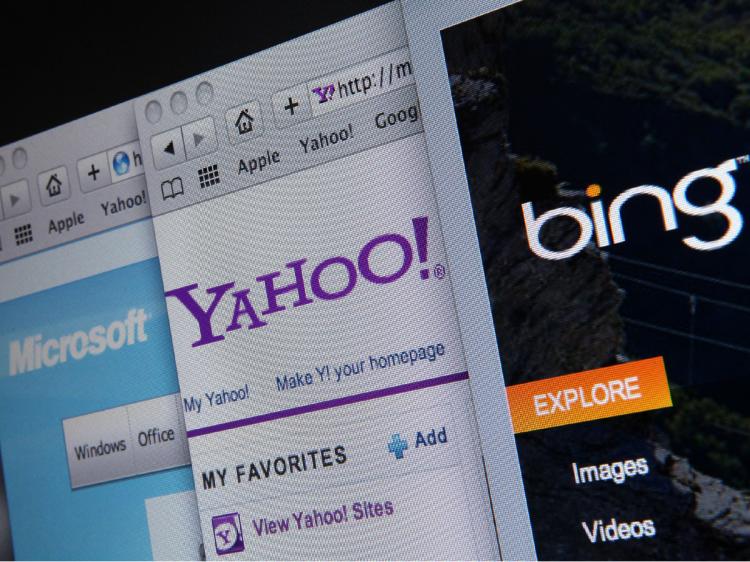The deal will give Microsoft exclusive rights to Yahoo!’s search technologies.
The companies signed an agreement to “create a combined market place through a single platform,” according to Yahoo! CEO Carol Bartz, in a media conference call. Yahoo will use Bing, Microsoft’s search engine, on all its sites, according a joint press release by Microsoft and Yahoo.
The companies will maintain separate sales forces and continue to compete with display ads.
Many analysts and company insiders say this was a long time coming, but the lack of an upfront payment in the deal seemed to have disappointed Yahoo investors who sent the company’s shares down more than 10 percent in Wednesday trading.
The deal has industry analysts as well as market researchers split right down the middle. Investors were disappointed about the lack of an upfront payment from Microsoft to Yahoo, while market watchers said that the deal would help Yahoo in the long term by allowing it to focus on advertising rather than search engine technology, a field in which it has always lagged behind Google.
Google has long dominated the Internet search engine market, with 65 percent of all Internet searches being done through its network. The Microsoft-Yahoo deal, dubbed “Microhoo” by industry analysts, will create a search network that would combine Yahoo’s 20 percent percent market share and Microsoft’s 8.5 percent share to reach slightly more than one quarter of the Internet search audience.
While industry analysts were in agreement that the combined company would create a decent number two alternative to Google’s dominance of the search engine market and slightly tilt the playing field for online advertising and allow for more competition, they also seemed to unanimously agree that Google’s number one position was far from threatened.
The deal quickly caught the attention of U.S. antitrust regulators, who fear that the combined company would reduce competition in the online search market industry. Senator Herb Kohl, the chairman for the U.S. Senate Antitrust Subcommittee, said that the deal “warrants our careful scrutiny”. The Wall Street Journal reported that the European Union Antitrust Commission is scrutinizing the deal as well.
Terms of the Deal
The two Internet giants agreed to share search engine technologies and revenues, with Microsoft focusing on search engine technology and Yahoo taking lead selling advertising for the combined network.
The two companies announced a ten-year partnership that was finally completed after six months of negotiations and three or four face-to-face meetings between Microsoft CEO Steve Ballmer and Yahoo’s new CEO Carol Bartz.
Under the terms of the deal, Microsoft’s recently-launched Bing search engine will power all searches on Yahoo’s sites, and Yahoo will be responsible for selling keyword advertising across both Microsoft’s and Yahoo’s network of sites.
Yahoo will reportedly get 88 percent of revenue from the ads over the first five years, and will license its search engine technology to Microsoft.
Ms. Bartz said that the deal would allow Yahoo to increase its annual operating income by $500 million, while reducing its expenditure costs by $200 million.
But the deal disappointed Yahoo investors, who had been expecting an upfront payment from Microsoft. Rumors for the upfront fees were in the range of $2 billion.
The deal also brings to an end a courtship saga that began last year when Microsoft attempted to buy Yahoo, raising its stake to almost $44 billion before being rebuffed by then-CEO Jerry Yang.
Yang had demanded close to $47 billion, a figure that Microsoft walked away from. The failed deal caused irate investors to quickly oust Yang from his CEO position, and he was replaced by Carol Bartz shortly thereafter.
Also in related news, as Yahoo is expanding its influence on the Web, a number of human rights activists and Chinese dissidents have filed complaints against Yahoo for its role in allegedly providing private information to the Chinese Communist regime, leading to the unlawful detention of many Chinese dissidents.
Tao Jun, from Anhui Province, China, was sentenced to three years in prison on charges of “subversion of the state.” Tao was one of the student democracy leaders in the 1989 student democracy movement, and ran the political commentary Web site MAFFA.com.
Information, including Tao’s e-mail address, leading to Tao’s arrest was allegedly provided by Yahoo.






